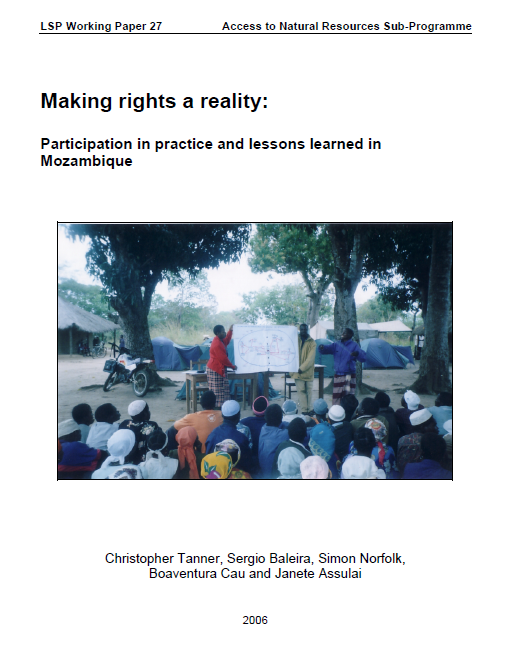Resource information
This paper represents part of an area of work which analyses access to natural resources in Mozambique. An initial paper examined the extent to which Mozambique’s recent regulatory changes to natural resource access and management have had their intended effects (LSP Working Paper 17: Norfolk, S. (2004). “Examining access to natural resources and linkages to sustainable livelihoods: a case study of Mozambique”). This paper is complemented by LSP Working Paper 28: Tanner et al. (2006). “Mozambique’s legal framework for access to natural resources: The impact of new legal rights and community consultations on local livelihoods”.
In the last decade, several important and innovative policies and laws have been passed in Mozambique, designed in part to enhance rural livelihoods by strengthening rights of people – especially the rural poor – to natural resources. The most notable of these are the Land Policy and Law (1997) and the Forestry and Wildlife Policy and Law (1999), all of which contain provisions to protect existing local rights on the one side, and promote local level participation in resource management on the other. The 1997 Environment Law also explicitly calls for local participation in its implementation, and creates new “diffuse rights” that apply to social groupings and which can be collectively exercised and defended. Key instruments such as the Environmental Impact regulations insist on full consultative processes involving all stakeholders and including local people.


